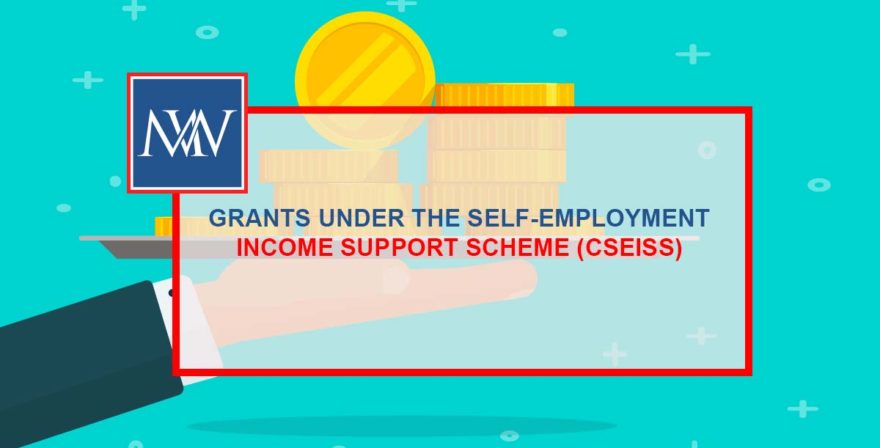
Grants under the self-employment income support scheme (CSEISS)
On 26 March 2020, the Chancellor announced a new grant scheme (CSEISS) available to the self-employed and members of partnerships and have lost income due to coronavirus.
This factsheet is based on the limited details announced by HMRC as at 30 March 2020.
Broadly the new scheme will allow the self-employed taxpayers to claim a taxable grant worth 80% of trading profits up to a maximum of £2,500 per month for the next 3 months. This may be extended if needed.
Note that the scheme does not apply to company directors who should be able to claim support using the Coronavirus Job Support Scheme. This would only cover their salary, however.
Who is eligible for CSEISS
The scheme is available to self-employed individuals and members of a partnership who satisfy all of the following conditions:
- They have submitted their Income Tax Self-Assessment tax return for the tax year 2018/19
- Have traded in the tax year 2019/20
- Are trading when they apply, or would be except for COVID-19
- They intend to continue to trade in the tax year 2020/21
- They have lost trading/partnership trading profits due to COVID-19
Thus someone who commenced self-employment in 2019/20 would not be eligible for a grant under the proposed rules.
The self-employed trading profits must also be less than £50,000 and more than half of the taxpayer’s income must come from self-employment.
At least one of the following conditions must be satisfied:
- Trading profits/share of partnership trading profits in 2018/19 of less than £50,000 and these profits constitute more than half of the taxpayer’s total taxable income, OR
- Average trading profits in 2016/17, 2017/18, and 2018/19 of less than £50,000 and these profits constitute more than half of the taxpayer’s average taxable income in the same period
If trading commenced between 6 April 2016 and 5 April 2019, HMRC will only use those years for which a Self-Assessment tax return has been filed.
‘Self-employed profits’ have not been defined but we assume that this refers to the net profit as shown on the self-assessment tax return for the year in question.
It is assumed that ‘income’ refers to total income before deducting the taxpayer’s personal allowance and would include all sources of taxable income including employment income, pensions and property income.
For those who have not submitted their Income Tax Self-Assessment tax return for the tax year 2018/19, they must do so by 23 April 2020 to qualify.
HMRC will use data on 2018/19 returns already submitted to identify those eligible and will risk assessing any late returns filed before the 23 April 2020 deadline in the usual way.
Amount of Grant Available
The taxable grant will be 80% of the average profits from the tax years (where applicable):
- 2016/17
- 2017/18
- 2018/19
To work out the average HMRC will add together the total trading profit for the 3 tax years (where applicable) then divide by 3 (where applicable), and use this to calculate a monthly amount. Where the trade commenced in that period it is assumed that the average will be computed on a pro-rata basis.
It will be up to a maximum of £2,500 per month for 3 months.
The grant will be paid directly into taxpayers bank accounts, in one instalment.
Taxpayers will need to include the grant in their income for tax credit purposes.
How to apply
Taxpayers cannot apply for this scheme yet. HMRC will contact taxpayers directly if they are eligible for the scheme and invite them to apply online.
Once HMRC has received the claim and the taxpayer is eligible for the grant, they will contact them to tell them how much they will get and the payment details.
The HMRC guidance alerts taxpayers to beware of scams from people purporting to be from HMRC and requesting the taxpayers name, credit card or bank details.
Other help you can get
The government is also providing the following additional help for the self-employed:
- Deferral of income tax payment on account due on 31 July 2020
- Deferral of VAT payments due between 20 March 2020 and 30 June 2020
- Grants to businesses that pay little or no business rates
- Increased amounts of Universal credit
- Business Interruption Loan Scheme
For more information on CSEISS, Book a Free Consultation
Need Accountancy Support?
For information on bespoke training, or if you have any other questions for Makesworth Accountant, please fill in your details below
















 151
151